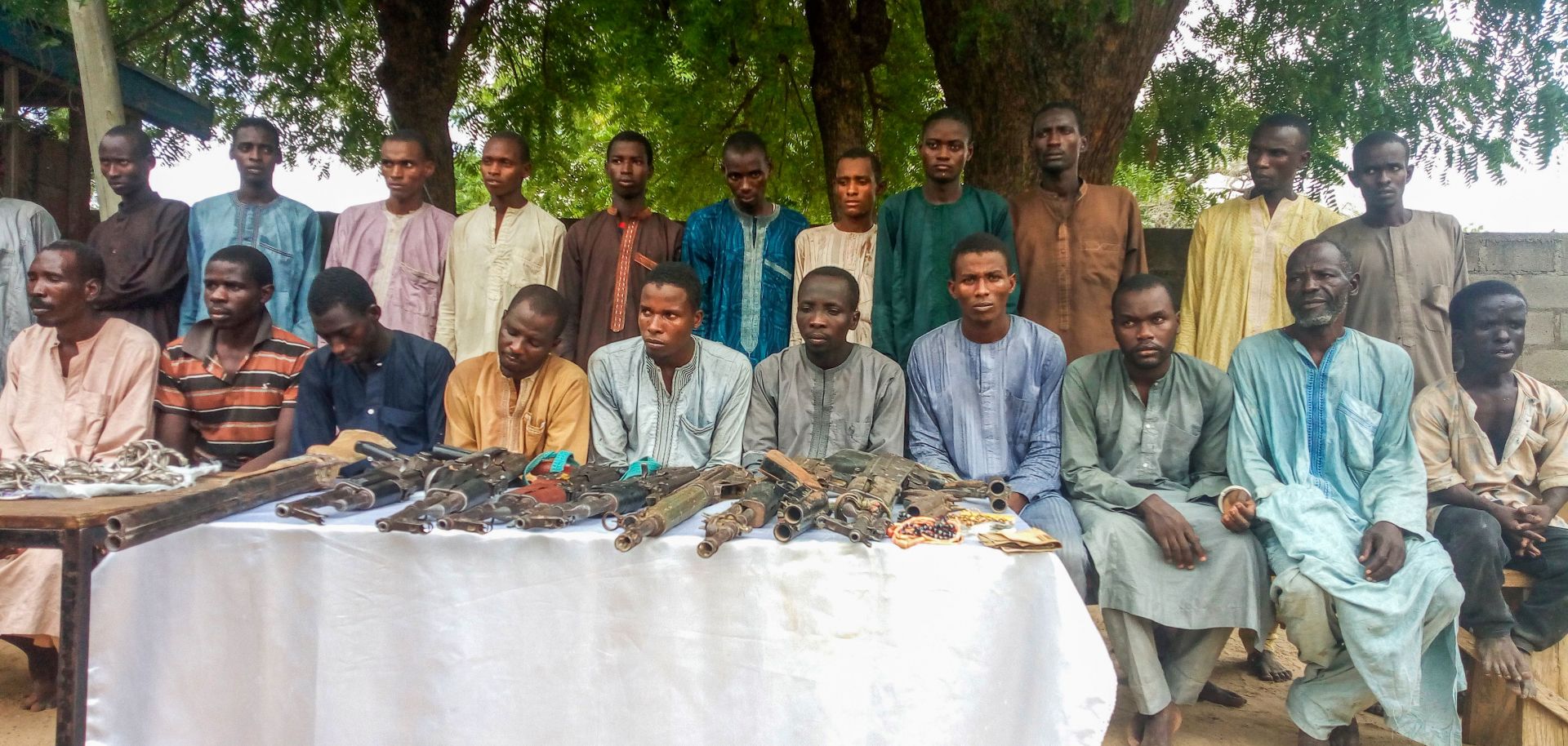COLUMNS
Defining Militant Groups: Why the Names Matter

Jul 24, 2018 | 08:00 GMT

Police officers present suspected ISWAP militants, as well as a cache of weapons, in Maiduguri, northeast Nigeria, on July 18. Maintaining as much as accuracy as possible is important when analyzing militant groups.
(AUDU MARTE/AFP/Getty Images)
Highlights
- Much of the media continues to use outdated names for militant groups, even though the designations have long since changed.
- Describing violent extremist groups as militants, rather than terrorists, does not whitewash their actions but serves to underline the multi-pronged threat they pose.
- When militant groups alter their names, it often signifies a change in tactics and targets — and maybe even their degree of brutality.
Subscribe Now
SubscribeAlready have an account?
